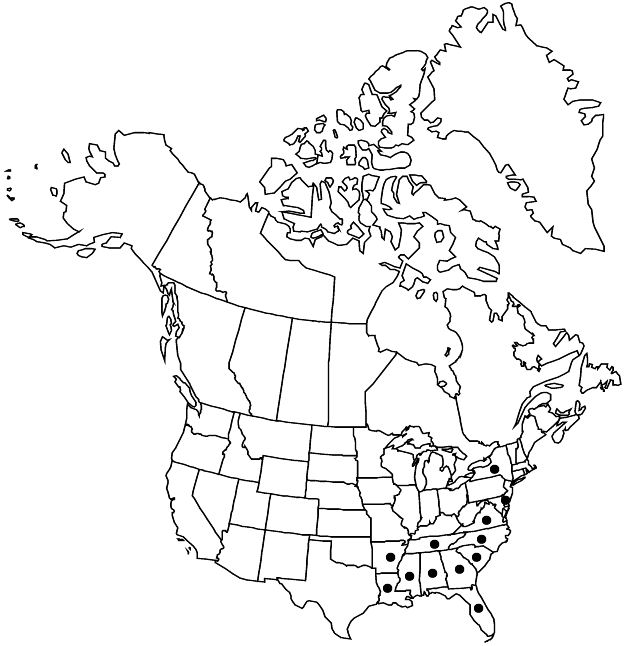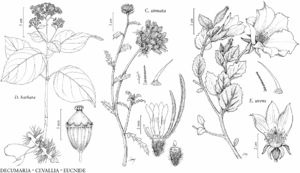Decumaria barbara
Sp. Pl. ed. 2, 2: 1663. 1763.
Stems to 100 dm; adventitious roots usually present. Twigs glabrous. Leaves: petiole slightly winged proximally, 10–30 mm, glabrous or short-pubescent; blade 10–12 × 6–8 cm, base cuneate, truncate, cordate, or rounded, apex acute, obtuse, rounded, or mucronate, abaxial surface light green, finely pubescent along veins, adaxial dark green, glabrous. Inflorescences compact, congested to open, 3–8 × 4–10 cm; peduncle 2–6 cm, glabrous. Pedicels 1–6 mm, glabrous. Flowers faintly fragrant; hypanthium 1.5–2.2 × 0.5–2 mm; sepals 0.2–1.3 × 0.2–0.5 mm, margins entire, apex acute to acuminate, surfaces glabrous abaxially; petals 2.8–3.2 × 1.2–1.7 mm; filaments 3–5 × 0.2–0.3 mm; anthers 0.7–1 mm; style stout, broad at base, 0–2 mm; stigmatic lines 7–12, radiating. Capsules 3.2–5.5 × 3–5 mm. Seeds 1.5–3 mm. 2n = 28.
Phenology: Flowering Apr–Jun; fruiting Jul–Oct.
Habitat: Very moist to wet woodlands and swamps mostly on Coastal Plain, rich woodlands.
Elevation: 0–400 m.
Distribution

Ala., Ark., Del., Fla., Ga., La., Miss., N.Y., N.C., S.C., Tenn., Va.
Discussion
Decumaria barbara is a rare escape from cultivation in New York.
Decumaria sinensis Oliver, of central China, differs from D. barbara in being a low-climbing vine with semipersistent or persistent leaves, stigmas almost completely sessile, and in plants growing at elevations of 600–1300 meters.
Selected References
None.
